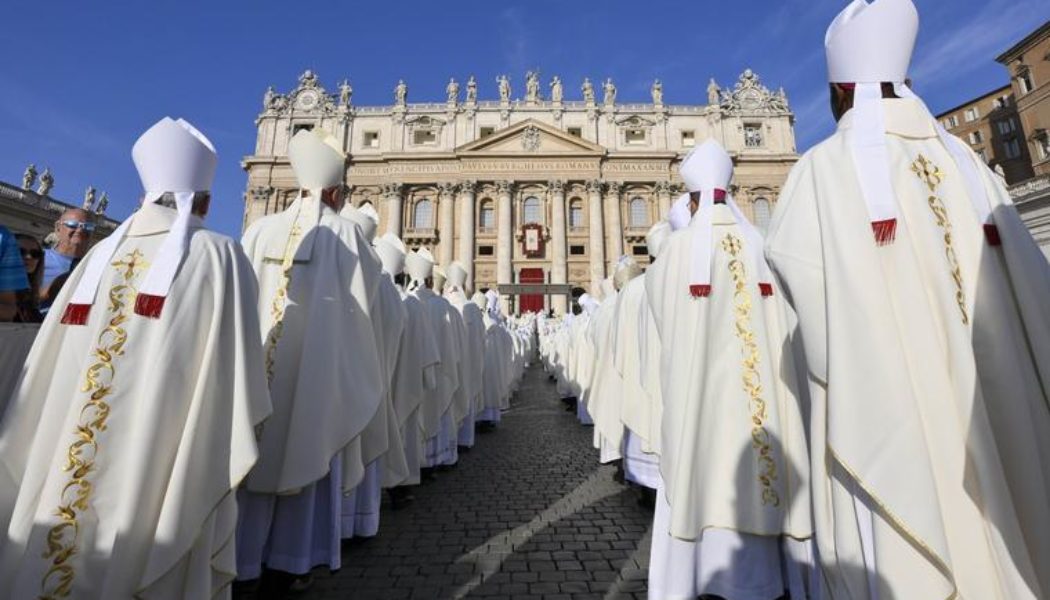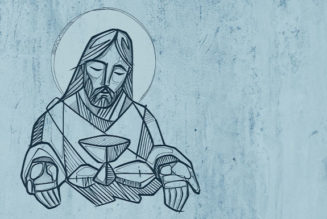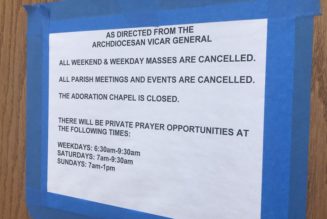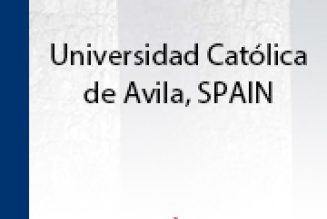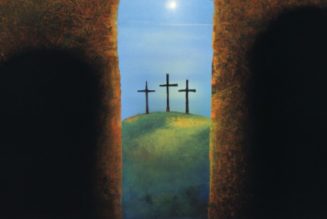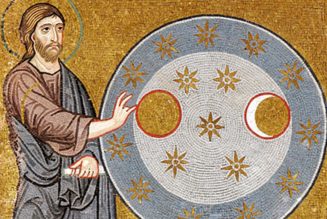
The most controversial issues may be off the agenda of next month’s Synod on Synodality assembly in Rome. But make no mistake about it: The Oct. 2-27 gathering could still lead to several big changes that impact daily life in the Catholic Church.
Delegates to the synod, which will conclude a four-year global synod process that’s focused on how to increase participation in the Catholic Church, will likely discuss and possibly approve proposals touching on everything from women in leadership positions to the ability of national bishops’ conferences to make doctrinal decisions.
The potential for impactful changes remains even after Pope Francis decided to transfer contentious topics — such as the possibility of women deacons and the discernment of controversial doctrinal issues (including those related to sexuality) — to dedicated study groups and not the synod assembly as a whole.
In fact, both concerned theologians and eager activists have speculated that by focusing on more foundational topics like decision-making in the life of the Church, the synod could actually “open the door” to efforts to change particular doctrines and disciplines.
And while participants like Cardinal Christoph Schönborn of Vienna have said that the specific topics of the synod “are a little up in the air,” the document that will guide October’s discussions, the instrumentum laboris (IL), already includes initial sketches of several concrete proposals.
More than 360 voting delegates — including, for the second year in a row, a significant number of women and non-ordained men — will discuss these proposals throughout October before voting on a final document. Pope Francis will take this text into consideration before writing his own post-synodal teaching — unless he decides to simply accept the synod’s final document as magisterial, as a recent change to canon law allows him to do.
Whatever the case, we’re in for a far more consequential October than those who focus only on “hot-button issues” would lead you to believe.
Here are seven concrete ways the synod can still change the Catholic Church.
1. Women in Seminaries — and Everywhere Else
Expect the synod to call for women to be more involved in seminaries. No, not as candidates for the priesthood, but as vital participants in the formation process for the men who are.
The IL emphasizes the importance of women having access to “teaching and formation” roles in seminary contexts, which will allow for future priests and women to “grow in their mutual knowledge and esteem for one another and in their ability to co-operate.”
The proposal is just one of many aimed at boosting the role of women in the Church. Others include involving women more in decision-making processes, diocesan positions of responsibility and as judges in canonical processes. In short, the goal is for women to play a greater role in every area of the Church not exclusively reserved to clerics. It’s all part of what the IL describes as the “reallocation of tasks,” whose performance, arguably, doesn’t require ordination.
The emphasis can likely be implemented in every part of the Church, though it’s also true that its novelty — and therefore its impact — will vary by region.
In places like the United States, for instance, it’s standard, albeit not required, for women to be seminary instructors and to hold diocesan leadership positions such as chancellor or school superintendent.
That’s not the case in every context. In many countries in Africa, for instance, a shortage of qualified lay theologians would make incorporating women into something like seminary formation a bigger challenge, perhaps speaking to a need for more fundamental shifts.
Thus, while concrete proposals regarding women’s role in the Church are likely to emerge from the synod, whether they are received as a call for dramatic change or simply “more of the same” will likely vary by context.
2. Super-Charged Episcopal Conferences
Pope Francis has called for a “sound decentralization” in the Church. And the synod’s preparatory document proposes strengthening episcopal conferences as a step in that direction.
Synod participants are set to discuss whether episcopal conferences — bodies of bishops in a given territory like the U.S. Conference of Catholic Bishops — should become canonically recognized “ecclesial subjects endowed with doctrinal authority,” capable of making liturgical, disciplinary and even theological decisions.
This kind of decentralization has been favored during the synod by, among others, German participants, who likely see it as a way of allowing them to implement desired changes related to Church teaching on sexuality and the possibility of ordaining women back in Germany.
The IL notes that this kind of “synodal style” can help “overcome the idea that all Churches must necessarily move at the same pace on every issue,” though it also adds that more localized decisions should not affect “the Church’s unity of doctrine, discipline, and communion.”
Changes in the canonical status of episcopal conferences — and their corresponding level of authority — could result in seismic shifts on the ground. Critics warn that this could lead to local Churches going their own way on key issues of doctrine and discipline, effectively being in communion in name only. Expect this topic to be one of the most hotly contested next month.
3. Bishop Evaluations
To promote transparency and accountability, the synod is likely to propose concrete ways that Church communities can evaluate their leaders.
In addition to already existing canonical norms, the IL states that it is necessary to develop “structures and forms of regular evaluation of how ministerial responsibilities of all kinds are exercised.”
“Evaluation, understood in a non-moralistic sense, enables ministers to adjust quickly and fosters their growth and ability to perform their service better,” the document states.
The proposal is presented as a way of combating clericalism and will likely be welcomed by those who would like Church leaders to be more accountable to their people when making decisions, whether about finances, diocesan reorganization or even the parish Mass schedule.
However, others are likely to express concerns that making the relationship between ministers and those they serve excessively evaluative could strain what is also supposed to be a spiritual bond.
After all, one study found that a similar effect took place in the U.S. after sex-abuse-prevention protocols led many priests to feel like their bishops viewed them primarily as potential legal liabilities.
Synod delegates, most of whom are bishops, will likely want to guard against similar unintended outcomes in any formal evaluation process that is established.
4. Ministry of Listening
The preparatory document proposes establishing a new “ministry of listening and accompaniment” as a way of making synodality a more concrete experience in the lives of ordinary believers.
This ministry would serve as an “open door” to the community, allowing people to enter without feeling threatened or judged.” Additionally, the ministry is envisioned as allowing communal discernment to take place at the local level, possibly by facilitating the synod’s “conversation in the spirit” methodology.
Establishing this new ministry, the IL states, would indicate the “prophetic character” of listening, demonstrating both that listening is an ordinary part of Church life but also that it is an ecclesial priority.
Pope Francis has already shown a willingness to institute new ministries to address a perceived need, creating the ministry of catechist in 2021. With the “ministry of listening” already fleshed out in the 2024 synod session’s preparatory document, expect some form of it to be proposed at the end of October — and for Pope Francis to move swiftly to implement it.
5. More-Than-Consultative Votes
A major focus next month will be on getting more people involved in making pastoral decisions in the Church.
The IL says that the proper ecclesial authority will be free to make final decisions without “competition or conflict,” since this authority is rooted in the “hierarchical structure of the Church established by Christ.”
But the text also implies that a bishop is somewhat bound to accept the “general agreement that emerges” from consultative processes.
It’s unclear how conflicts that might emerge would ultimately be resolved in a way that respects both Church hierarchy and the vision of synodality put forth.
This picture becomes even more muddled when the IL proposes that the canonical formula that speaks of a “consultative vote only” should be corrected, because it “diminishes the value of consultation.”
While the details of what is actually being proposed regarding expanded participation in decision-making remain extremely fuzzy, such a change could have enormous consequences. Expect synod delegates to be requesting more clarity during their time in Rome.
6. Intra-Ecclesial Solidarity
Given its international nature, the Synod on Synodality has been hailed by participants as a time of deepening solidarity and mutual enrichment between Catholics in the universal Church. Additionally, as the IL puts it, “the existence of rich Churches and Churches that live in great hardship is a scandal.”
Therefore, expect proposals to emerge that formalize local Churches sharing their respective gifts, not only material ones, but catechetical and ministerial as well.
Certainly, collaborative efforts between, for instance, the wealthier Churches of the West and the more vibrant Churches of the Global South already exist, including exchanges of priests and financial resources. But a concrete proposal from the synod could spur renewed dedication to this kind of “gift sharing,” similar to how St. John XXIII’s directive sparked a movement of North American-sponsored mission parishes in Central and South America in the 1960s.
7. A Never-Ending Synod
The penultimate draft of the 2023 synod session’s summary included a proposal to create “a permanent synod of Bishops elected by Episcopal Conferences to support the Petrine ministry” — in other words, a permanent, geographically representative “super-synod” to advise the Pope on an ongoing basis.
The proposal didn’t make the final cut then, but related language has found its way back into the 2024 session’s preparatory document.
Citing Pope Francis’ 2018 apostolic constitution Episcopalis Communio, the document calls for the transformation of the synod “from an occasional event to an ecclesial process that extends in space and time.”
While no concrete details have been provided about how to transition the Synod of Bishops from an “occasional event” — ordinarily once every three years on a topic determined by the Pope — to an ongoing “ecclesial process,” the document did speak affirmatively of the Synod on Synodality’s “process by stages.” October’s concluding session comes after three years of diocesan, national and regional sessions.
The Synod on Synodality may be concluding at the end of October. But if something like a “super-synod” is proposed by the delegates, and accepted by Pope Francis, we’ll be hearing about synods in Rome well beyond this year.
